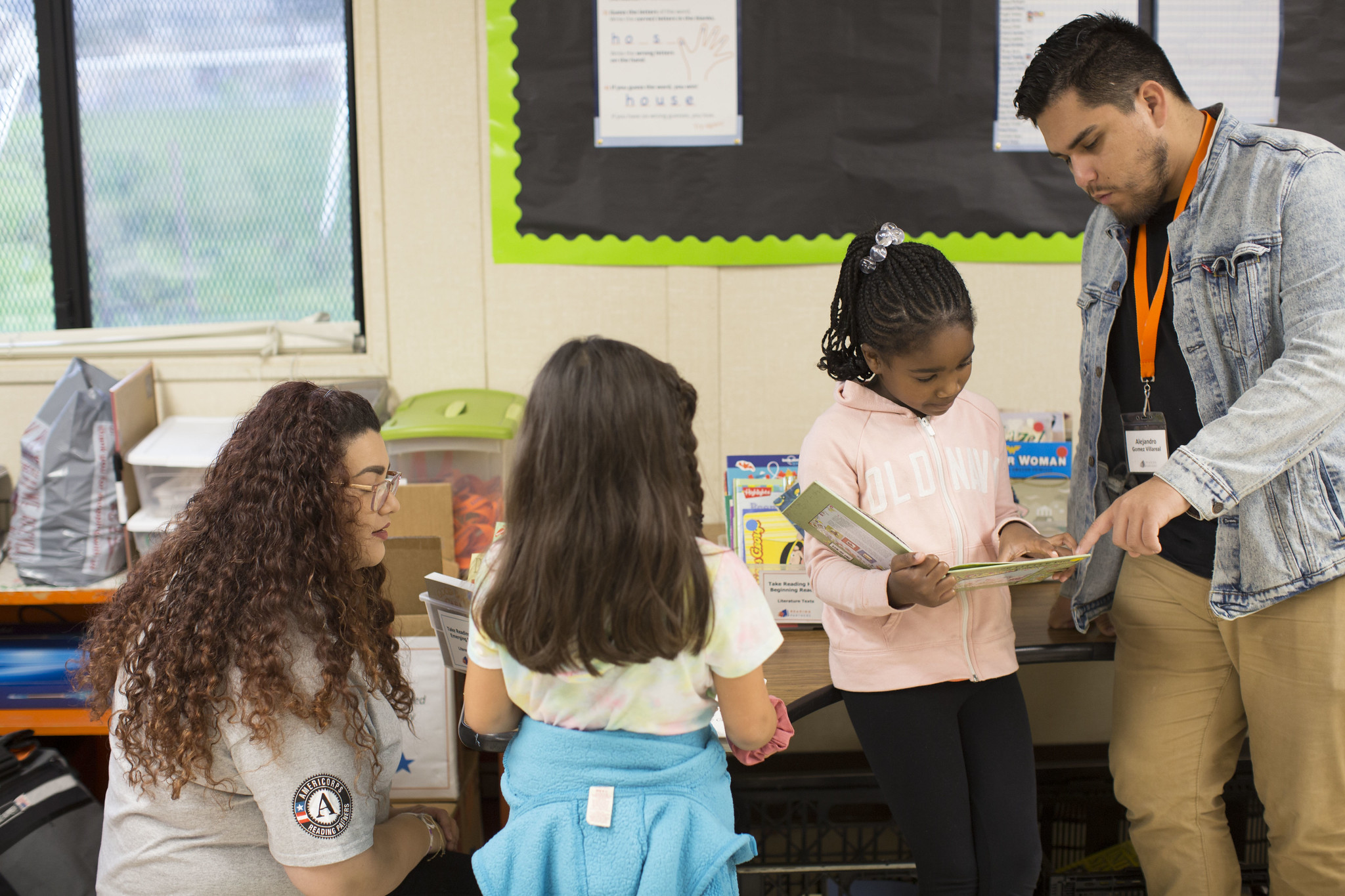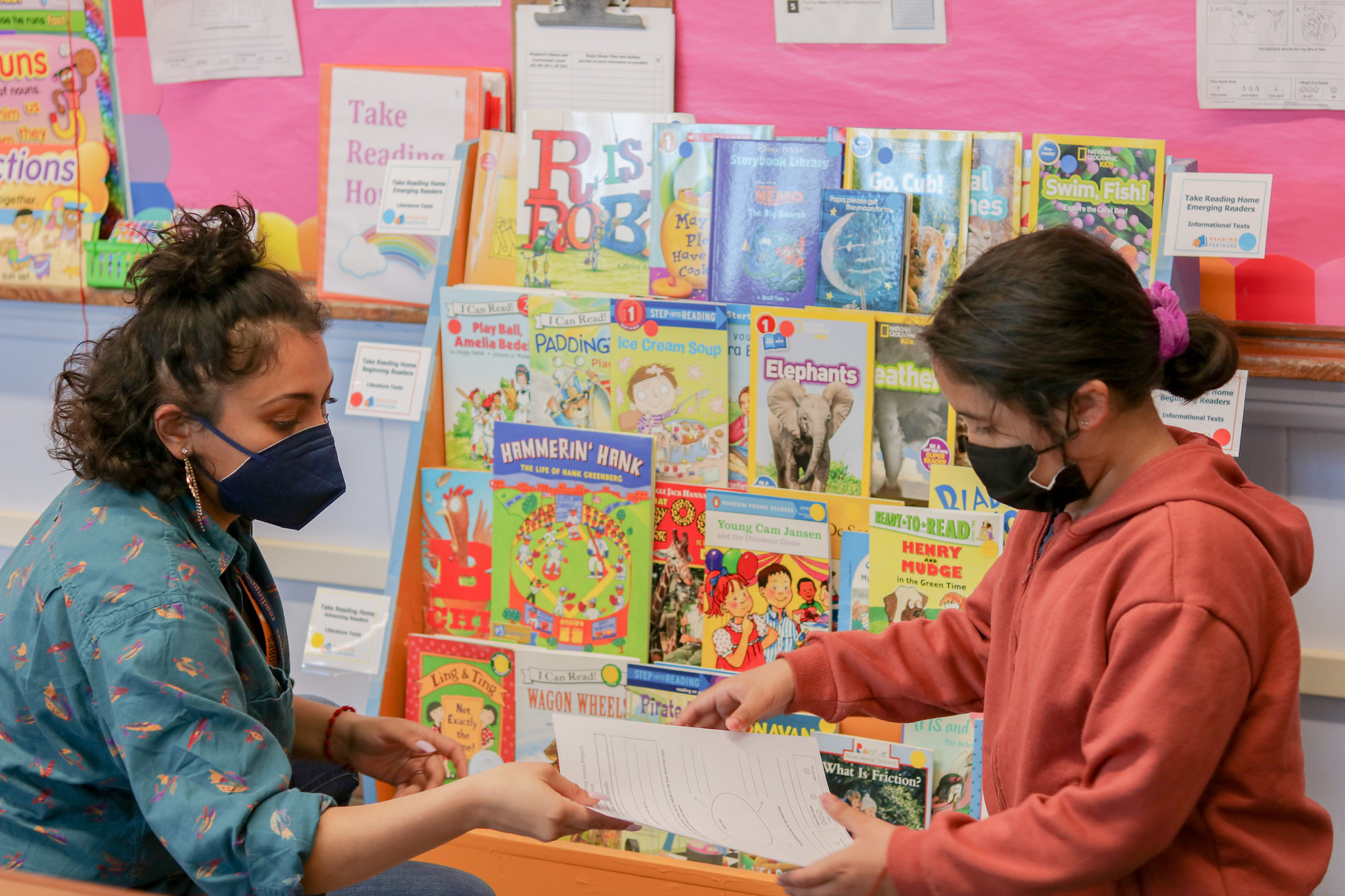
A week in the life of an AmeriCorps volunteer coordinator
November 28, 2022
Originally posted on Tami’s LinkedIn
Hello, everyone! My name is Tami, and I am a senior AmeriCorps volunteer coordinator with Reading Partners San Francisco Bay Area. I will be using this space to document my experience as a senior AmeriCorps member, as well as offer some insight into the work I do in community engagement. I will be posting once a week, discussing different aspects of my role.
This week, I had three tutor orientations, and they were in three different locations. We have an office space in San Francisco in the Mission, an office space in Oakland in Jack London Square, and we share a Reading Partners National space with Playworks, another nonprofit in the area. I was lucky enough to facilitate at all three in the last five days!
Each and every tutor orientation has its own vibes, and this all depends on a variety of factors. Some volunteers will stay quiet and trust your judgment on what exactly they need to do. Some volunteers are quite active and will ask a lot of questions for clarity, or even questions you may not know how to answer as an AmeriCorps volunteer coordinator! It’s always good to see passionate tutors who want to learn more about the program and how they can be their very best for their students, but sometimes it can get overwhelming if you haven’t answered those kinds of questions before.

Tutor orientations are often facilitated in pairs, typically by two volunteer coordinators, but sometimes other members of Community Engagement (CE) will step in to assist if two volunteer coordinators are not available at that time. Depending on attendance, you may feel confident in doing it all by yourself. However, if you are going solo and have a larger than expected audience, please be prepared for the unexpected. That’s kind of how we roll in CE: when life give you lemons, make them into tutors.
If you come across questions that seem way over your head, that’s perfectly okay. We are all still learning new things when we come into service, and you can let your tutors know that even though you don’t have the answer currently, someone may in fact know more about what is being asked. Give yourself time to process. Repeat after me: “Wow, that’s a very good question.” Not only does this give you more time to think about your answer, but it also validates the curious tutor looking to you for advice.
A lot of work can go into preparing for and following up on tutor orientations, but they all follow the same rough steps:
- Send a reminder email about an hour before the scheduled time.
- Set up your attendance sheet from the Salesforce Tutor Orientation Roster.
- Get your computer and AV equipment (Jamboard, projector, etc) ready.
- Greet tutors as they arrive. (Typically starts 15 minutes before orientation time, greeter will stay 5-10 minutes after start time to allow late-coming guests if needed.)
- Present Tutor Orientation information to tutors, answering questions as needed.
- Finish Tutor Orientation content, going around the room and asking tutors for availability before saying goodbye.

In my region, reading centers are open from Monday-Thursday, somewhere between 8:00 AM and 5:00 PM, which are the service hours our program coordinators typically work. We collaborate closely with our Program team to make sure that volunteers get connected with the right place and right time so they can meet their students!
If you are interested in tutoring our students, feel free to reach out at any time! We are also looking for 12 more AmeriCorps members like me and our program coordinators to serve the San Francisco and East Bay areas. Check out our job listings here on LinkedIn.
Read the other blogs in this series here:



